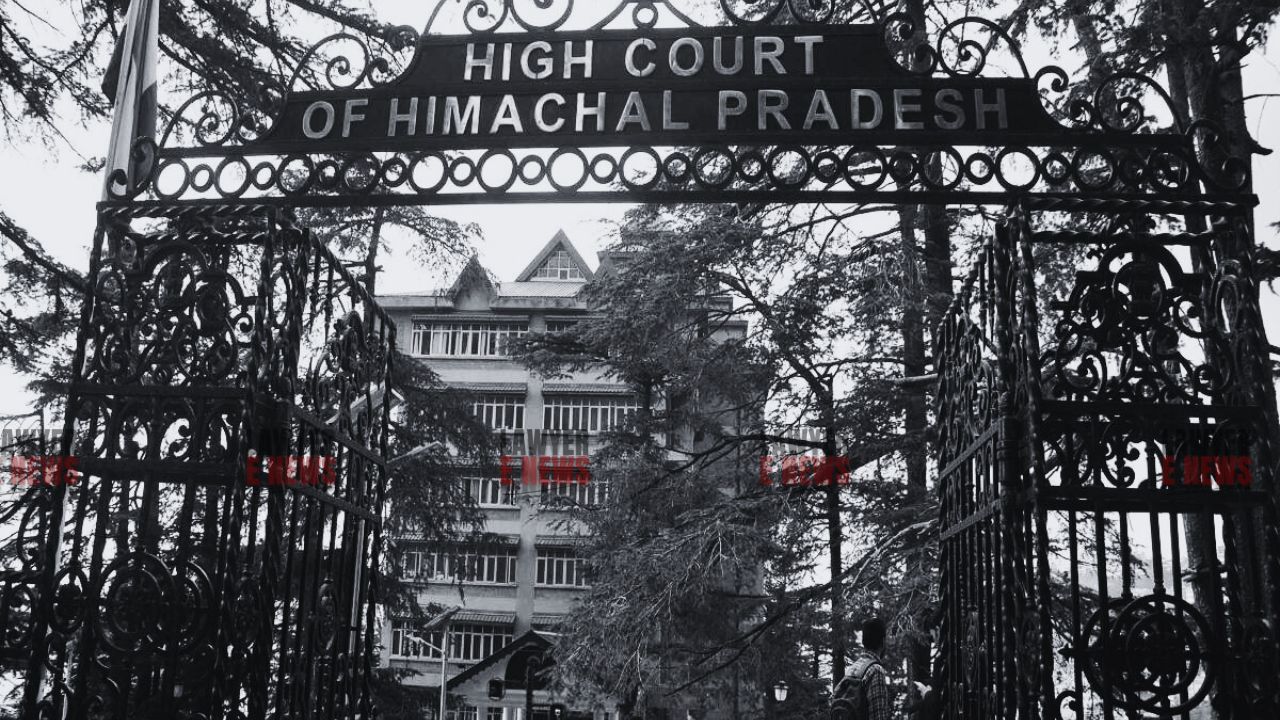-
by Admin
15 February 2026 2:16 AM



High Court sets aside Trial Court's order issuing recovery warrant for arrears exceeding one year, emphasizing statutory time-bar for maintenance recovery. The Himachal Pradesh High Court, in a recent ruling, quashed a warrant issued by the Trial Court for the recovery of ₹120,000 in maintenance arrears. The judgment, delivered by Justice Rakesh Kainthla, reaffirmed the statutory limitation under Section 125(3) of the Criminal Procedure Code (CrPC), which restricts the recovery of maintenance arrears to one year from the date they become due. The court set aside the Trial Court’s orders, holding that the warrant for the recovery of arrears exceeding one year was illegal.
In Umesh Kumar vs. Veena Kumari, the respondent-wife had initially filed a petition in 2009 seeking maintenance under Section 125 CrPC, which was granted at the rate of ₹1000 per month. After a period of non-payment, she filed an application in 2013 for the enforcement of this order, seeking arrears from March 2009 to January 2013. The petitioner-husband contested this, arguing that the claim was time-barred under the one-year limitation provided by Section 125(3) CrPC.
In May 2023, the Trial Court ruled that the wife could only claim arrears from April 2012 onwards, as the application was filed in April 2013. Despite this, the Trial Court later issued an order in December 2023 directing the recovery of ₹120,000 in arrears, covering a period exceeding one year. This led the petitioner to approach the High Court, seeking to quash the recovery order.
The central issue in the case was the statutory limitation under Section 125(3) of the CrPC, which allows the recovery of maintenance arrears only for one year from the date they become due. The court held that the Trial Court had recognized this limitation in its May 2023 order but contradicted itself in December 2023 by issuing a warrant for a sum far exceeding the permissible arrears.
Justice Kainthla emphasized that the statute is clear in its intent to protect individuals from accumulating unmanageable arrears. "The first proviso to sub-section (3) of Section 125 CrPC clearly limits the recovery of arrears to one year from the date they become due. The Trial Court’s subsequent order directing the recovery of ₹120,000 was in direct violation of this provision," the court stated.
The judgment relied on precedents from the Madhya Pradesh and Orissa High Courts, both of which upheld the one-year limitation in similar cases. The court cited Nanhi Bai vs. Netram and Sabita Kumari Nayak vs. Satrughan Nayak, reinforcing the principle that maintenance arrears must be claimed within one year of their accrual. "The legislative intent behind this limitation is to ensure that the person entitled to maintenance does not sleep over their rights and must enforce the order promptly," the court observed.
The High Court further noted that allowing arrears to pile up without limitation would impose undue financial hardship on the person liable to pay, which the law aims to prevent. In light of these considerations, the court concluded that the Trial Court’s decision to issue a recovery warrant for arrears exceeding one year was legally unsustainable.
Justice Kainthla remarked, "Once the arrears of maintenance for one year were paid, nothing survived in the petition, and the warrant of realization for ₹120,000 could not have been issued by the learned Magistrate." He further stated, "The statutory bar on claiming arrears beyond one year is crucial to prevent the undue financial burden that may arise from delayed enforcement."
The Himachal Pradesh High Court’s ruling in this case reaffirms the strict one-year limitation for recovering maintenance arrears under Section 125(3) CrPC. By quashing the Trial Court’s order, the judgment highlights the need for prompt enforcement of maintenance orders and sets a clear precedent for future cases involving maintenance arrears. This decision is likely to impact similar matrimonial disputes, ensuring that the statutory limitations are strictly adhered to in the enforcement of maintenance claims.
Date of Decision: 5th September 2024
Umesh Kumar vs. Veena Kumari
